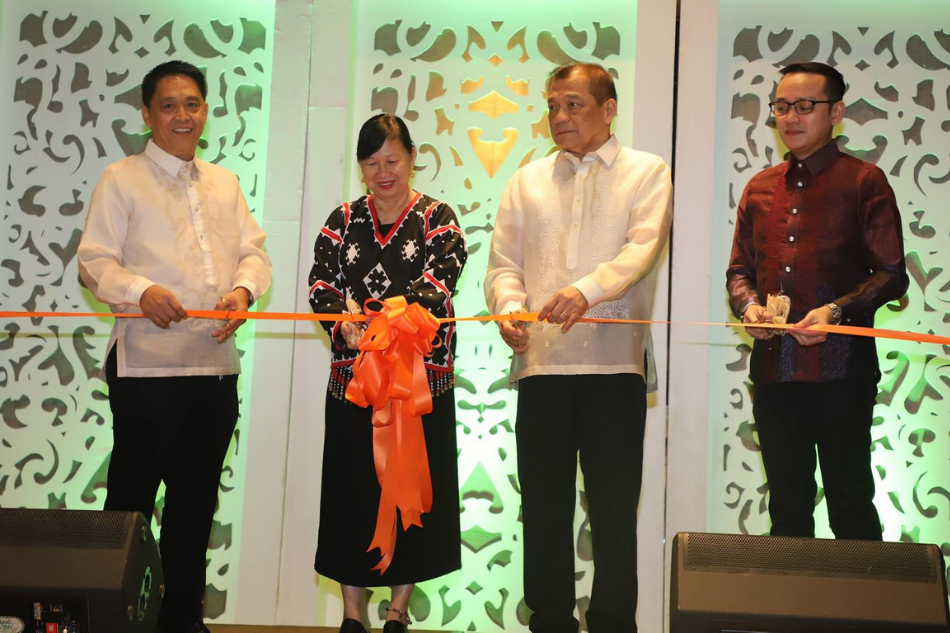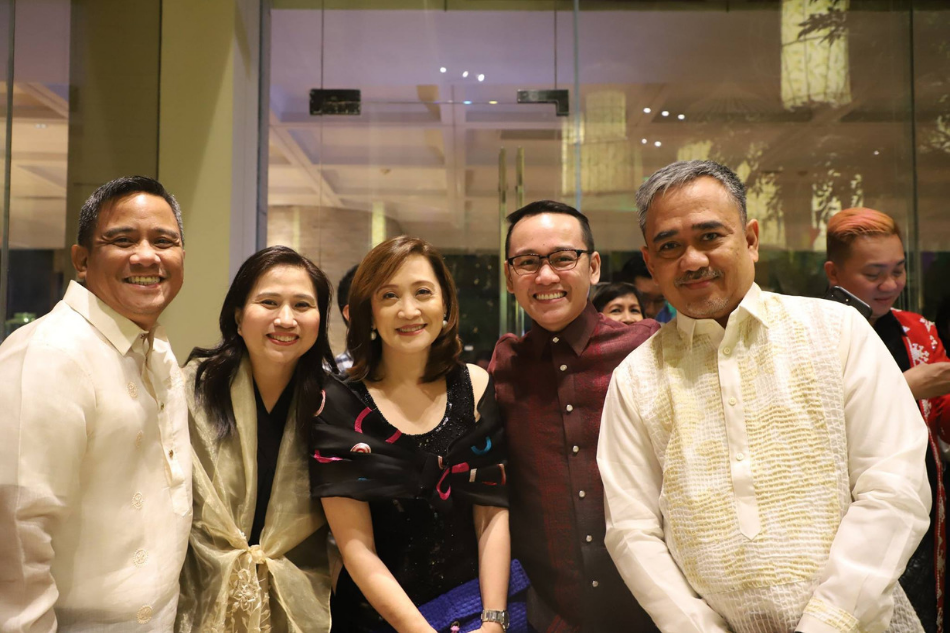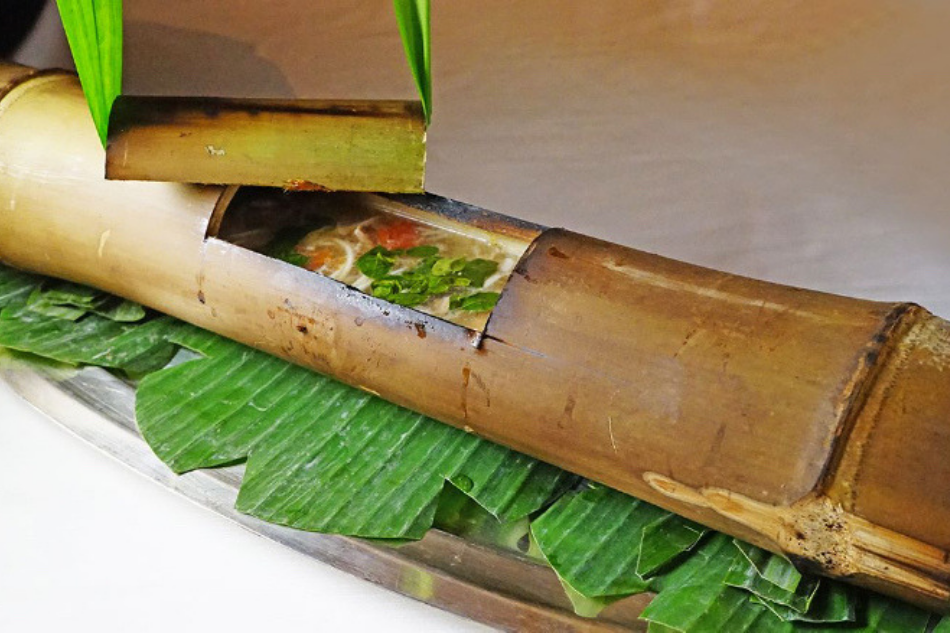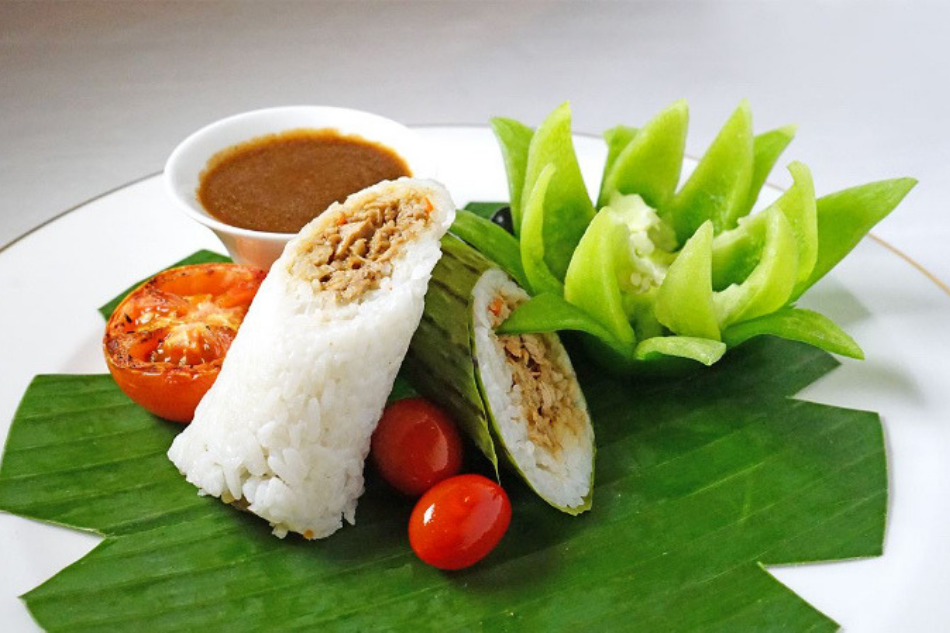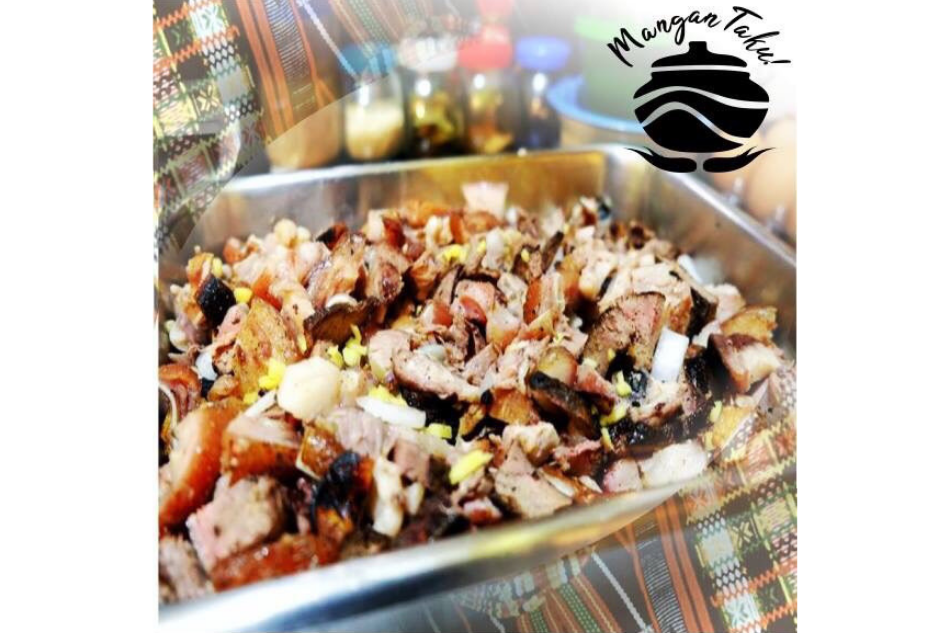Why the first Filipino Food Month this April is more than just the food | ABS-CBN

Welcome, Kapamilya! We use cookies to improve your browsing experience. Continuing to use this site means you agree to our use of cookies. Tell me more!
Why the first Filipino Food Month this April is more than just the food
Why the first Filipino Food Month this April is more than just the food
Marilen Fontanilla
Published Apr 09, 2019 09:10 AM PHT
|
Updated Apr 09, 2019 09:16 AM PHT
“Philippine food was shaped by the land in which it was born, and so were its cooking processes, ingredients, meal patterns, flavor principles, ways of serving and social functions…land, history and society have been the determinants of Philippine food. And it is the story of our country,” writes the late food scholar Doreen Fernandez in her book Palayok: Philippine Food Through Time, on Site, in the Pot. These words were likely the spark that kindled my interest in and passion for Philippine cuisine so many years ago, as I intertwined my experience and memory with her articles, essays, and books that capture our varied culinary landscape and history. I still have her collection of writings: Tikim: Essay on Philippine Food and Culture, Sarap: Essays on Philippine Food, and Palayok which have been my narrative salvation over the years.
“Philippine food was shaped by the land in which it was born, and so were its cooking processes, ingredients, meal patterns, flavor principles, ways of serving and social functions…land, history and society have been the determinants of Philippine food. And it is the story of our country,” writes the late food scholar Doreen Fernandez in her book Palayok: Philippine Food Through Time, on Site, in the Pot. These words were likely the spark that kindled my interest in and passion for Philippine cuisine so many years ago, as I intertwined my experience and memory with her articles, essays, and books that capture our varied culinary landscape and history. I still have her collection of writings: Tikim: Essay on Philippine Food and Culture, Sarap: Essays on Philippine Food, and Palayok which have been my narrative salvation over the years.
Recently, I revisited her works to remind myself about where we are today cuisine-wise and to help me understand the significance of Presidential Proclamation 469, otherwise known as the celebration of Filipino Food Month, which was declared by President Rodrigo Duterte last April 13, 2018.
Recently, I revisited her works to remind myself about where we are today cuisine-wise and to help me understand the significance of Presidential Proclamation 469, otherwise known as the celebration of Filipino Food Month, which was declared by President Rodrigo Duterte last April 13, 2018.
More about Filipino food:
More about Filipino food:
At the launch of the first Filipino Food Month held at the atrium of Café Ilang Ilang in Manila Hotel, the organizers behind this month-long celebration elaborated on how the objective goes far beyond the planned month-long festivities, as this government-mandated initiative seeks to educate, inform, and provoke us to explore our relationship with Filipino food, what we eat, how we eat it, and why that is important.
At the launch of the first Filipino Food Month held at the atrium of Café Ilang Ilang in Manila Hotel, the organizers behind this month-long celebration elaborated on how the objective goes far beyond the planned month-long festivities, as this government-mandated initiative seeks to educate, inform, and provoke us to explore our relationship with Filipino food, what we eat, how we eat it, and why that is important.
Food as culture
Food as culture
Filipino Food Month will be celebrated every April beginning this year according to Presidential Proclamation 469. It invites the public to take part in activities designed to promote, preserve, and ensure the transmission of our culinary traditions and treasures to future generations, and to support and appreciate the industries and agri-communities linked to the food landscape.
Filipino Food Month will be celebrated every April beginning this year according to Presidential Proclamation 469. It invites the public to take part in activities designed to promote, preserve, and ensure the transmission of our culinary traditions and treasures to future generations, and to support and appreciate the industries and agri-communities linked to the food landscape.
ADVERTISEMENT
The government agencies leading the celebration are the National Commission for Culture and the Arts (NCCA), the Department of Agriculture (DA), and the Department of Tourism (DOT), together with an NGO, the Philippine Culinary Heritage Movement (PCHM), of which I am a board member.
The government agencies leading the celebration are the National Commission for Culture and the Arts (NCCA), the Department of Agriculture (DA), and the Department of Tourism (DOT), together with an NGO, the Philippine Culinary Heritage Movement (PCHM), of which I am a board member.
At the launch, NCCA Executive Director Rico S. Pableo Jr. was hopeful that Filipino Food Month would “give us more inspiration to understand how food really makes us who we are today and why we should be proud of it.” PCHM President Jam Melchor added, “Our culinary traditions are a strong pillar of our national culinary identity. This national celebration can jump start more in-depth research and discussion about local food culture and gastronomy.” DA Undersecretary Evelyn Laviña echoed that this will allow us to understand each other as Filipinos through the culinary expertise of each region.
At the launch, NCCA Executive Director Rico S. Pableo Jr. was hopeful that Filipino Food Month would “give us more inspiration to understand how food really makes us who we are today and why we should be proud of it.” PCHM President Jam Melchor added, “Our culinary traditions are a strong pillar of our national culinary identity. This national celebration can jump start more in-depth research and discussion about local food culture and gastronomy.” DA Undersecretary Evelyn Laviña echoed that this will allow us to understand each other as Filipinos through the culinary expertise of each region.
According to Melchor, Filipino Food Month is the catalyst that can make a difference in our awareness and appreciation of our cuisine. “I realized we need to do more to inform ordinary Filipinos about how rich and full of potential Philippine gastronomy is. It is never just pantawid gutom. It is our soul and our identity,” he explained.
According to Melchor, Filipino Food Month is the catalyst that can make a difference in our awareness and appreciation of our cuisine. “I realized we need to do more to inform ordinary Filipinos about how rich and full of potential Philippine gastronomy is. It is never just pantawid gutom. It is our soul and our identity,” he explained.
Beyond the eating
Beyond the eating
When we hear about food festivals, there is always a miniscule part of my brain that questions this as little more than an excuse to eat to one’s heart’s content. But does this Filipino Food Month go beyond the usual feasting and carousing?
When we hear about food festivals, there is always a miniscule part of my brain that questions this as little more than an excuse to eat to one’s heart’s content. But does this Filipino Food Month go beyond the usual feasting and carousing?
Melchor reaffirms Filipino Food Month’s importance for future generations, “By doing this, we are hoping that there will be increased interest in supporting the advocacy of preserving our food culture which is being threatened by the globalization of food and dining culture.”
Melchor reaffirms Filipino Food Month’s importance for future generations, “By doing this, we are hoping that there will be increased interest in supporting the advocacy of preserving our food culture which is being threatened by the globalization of food and dining culture.”
Renowned food writer, editor, and Food Writers Association of the Philippines co-founder Micky Fenix agrees, “It is great that the government finally acknowledges that food is a part of our culture by declaring Filipino Food Month. And that they support efforts to spread and preserve Filipino cuisine. It is also great that there are different groups doing the same thing, having the same cause, but accomplishing the same goal in their different ways.”
Renowned food writer, editor, and Food Writers Association of the Philippines co-founder Micky Fenix agrees, “It is great that the government finally acknowledges that food is a part of our culture by declaring Filipino Food Month. And that they support efforts to spread and preserve Filipino cuisine. It is also great that there are different groups doing the same thing, having the same cause, but accomplishing the same goal in their different ways.”
One of these groups is the Association of Culinary Historians of the Philippines Inc. or CHOP. CHOP President Clang Garcia, who was also present at the launch, was ecstatic about the impact this would have for future generations, as she commented, “The story will start to change as Philippine culinary heritage is given the way overdue spotlight and honor it deserves. With this declaration and our persistent collective efforts, the Philippine gastronomy landscape will become more robust than ever.”
One of these groups is the Association of Culinary Historians of the Philippines Inc. or CHOP. CHOP President Clang Garcia, who was also present at the launch, was ecstatic about the impact this would have for future generations, as she commented, “The story will start to change as Philippine culinary heritage is given the way overdue spotlight and honor it deserves. With this declaration and our persistent collective efforts, the Philippine gastronomy landscape will become more robust than ever.”
“Ang Sarap ng Pagkaing Pilipino”
“Ang Sarap ng Pagkaing Pilipino”
With the theme “Ang Sarap ng Pagkaing Pilipino,” Filipino Food Month has a slew of activities planned, including the following events:
With the theme “Ang Sarap ng Pagkaing Pilipino,” Filipino Food Month has a slew of activities planned, including the following events:
-
Ang Sarap Philippine Food Festival at Café Ilang Ilang in Manila Hotel highlighting regional dishes in its buffet spread during the whole month of April
-
Pista sa Guevarra’s: Celebration of Filipino Food Flavors at Guevarra’s San Juan, ongoing until April 30
-
TienDA, a venue for farmers and fisherfolk to directly sell their produce, held at the Department of Agriculture grounds in Quezon City on April 10 to 12
-
A Bangsamoro lunch and lecture on “The Coconut Cuisines of Muslim Mindanao” by Datu Shariff Pendatun III organized by CHOP at Chef Jessie’s Place, Makati on April 13
-
The Filipino Food Connection: Creating Stories from Heirloom Dishes and Homegrown Flavors, a food writing workshop at Discovery Primea on April 27
-
Ang Sarap Philippine Food Festival at Café Ilang Ilang in Manila Hotel highlighting regional dishes in its buffet spread during the whole month of April
-
Pista sa Guevarra’s: Celebration of Filipino Food Flavors at Guevarra’s San Juan, ongoing until April 30
-
TienDA, a venue for farmers and fisherfolk to directly sell their produce, held at the Department of Agriculture grounds in Quezon City on April 10 to 12
-
A Bangsamoro lunch and lecture on “The Coconut Cuisines of Muslim Mindanao” by Datu Shariff Pendatun III organized by CHOP at Chef Jessie’s Place, Makati on April 13
-
The Filipino Food Connection: Creating Stories from Heirloom Dishes and Homegrown Flavors, a food writing workshop at Discovery Primea on April 27
Outside Manila, several festivals and activities will also take place this April, starting with the “Sinag: Tracing Emilio Aguinaldo’s Food Palate” exhibit at De La Salle University in Dasmariñas, Cavite, and the Namnaman Food Festival held in Pampanga State Agricultural University. Mangan Taku: Cordillera Food Fair takes place in Burnham Park, Baguio on April 8 to 14. Capiztahan in Capiz is happening on April 11 to 12 in Roxas City. Republic of Taste: A Gastronomic Journey in South Luzon will be held at SM City Rosario, Cavite on April 26 to 28. On April 27, three events will be happening simultaneously: Sabores de Visayas in Iloilo, a Kulinarya Tour of Quezon, and World Disco Soup Day in Manila.
Outside Manila, several festivals and activities will also take place this April, starting with the “Sinag: Tracing Emilio Aguinaldo’s Food Palate” exhibit at De La Salle University in Dasmariñas, Cavite, and the Namnaman Food Festival held in Pampanga State Agricultural University. Mangan Taku: Cordillera Food Fair takes place in Burnham Park, Baguio on April 8 to 14. Capiztahan in Capiz is happening on April 11 to 12 in Roxas City. Republic of Taste: A Gastronomic Journey in South Luzon will be held at SM City Rosario, Cavite on April 26 to 28. On April 27, three events will be happening simultaneously: Sabores de Visayas in Iloilo, a Kulinarya Tour of Quezon, and World Disco Soup Day in Manila.
“The Philippines has all the right ingredients to be an international gastronomic destination. If we cultivate our homegrown cultural appetite, then global taste buds will soon follow,” Melchor says, ending with an optimistic look towards the future. “Celebrating Filipino food culture and food traditions through this national activity is extremely important because it is recognizing that our cuisine is part of our identity as Filipinos and something that will bind us together.”
“The Philippines has all the right ingredients to be an international gastronomic destination. If we cultivate our homegrown cultural appetite, then global taste buds will soon follow,” Melchor says, ending with an optimistic look towards the future. “Celebrating Filipino food culture and food traditions through this national activity is extremely important because it is recognizing that our cuisine is part of our identity as Filipinos and something that will bind us together.”
For the schedule of Filipino Food Month activities, visit the Facebook page of Filipino Food Month
ADVERTISEMENT
ADVERTISEMENT




